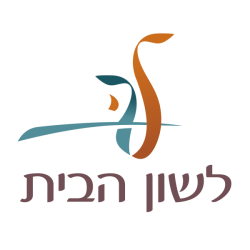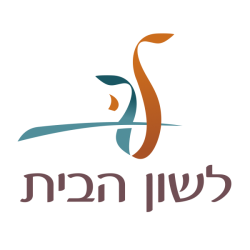שיר לחינה

תיעוד ושימור לשונות היהודים ותרבויותיהם ע"ש חיים (מרני) טרבלסי ז"ל


After a year they married me. They married me and I went to the Negev, I spend seven years in the Negev. After seven years, the moshav was not good, so we came and stayed in Binyamina. Now I am in Binyamina.
I used to go to a woman that would tell us stories, and we would stay with her. Her husband used to go to the synagogue, and my husband’s father also used to go to the synagogue. My husband’s father told him “We want a good girl for my son”, he told him “Come, there are a lot of girls, take one!”. He came, and said “I want that one”. After one year we got married. Not in a grand style, but… they made it in the tent, they made food, and the wine, and a Rabbi came in the synagogue. He blessed us with the seven blessings in the synagogue and we came to the tent. We had the wedding, they made a good wedding, and that was it.
I didn’t work, I stayed at home, my husband, my children and I.
Good, but the moshav was not good. There were no crops, there was no agriculture, there was nothing… my husband was working with goats, there was nothing in the moshav, total wilderness. Houses, houses like in other places and that was all, it couldn’t be called a moshav.
qʕadna ʕām hnǟya, baʕd ʕām zəwwzū-ni. Zəwwzūni mšēt lə-n-HENegevHE, qʕačč sebʕa snīn fi n-HENegevHE. baʕd sebʕa snīn əḷ-HEmušav ayaHE mūš bāhi, HEazHE žēna u-skənna fi HEBinyaminaHE. Čəwwa āna fi HEBinyaminaHE.
Āna kənt nəmši l-wāḥda čqūl-ən-na xʁāfāč, w-HEanaxnuHE nqaʕdu mʕā-ha, u-ʁāžəl-ha yemši lə-ṣ-ṣla, u-bu ʁāžl-i, ḥačča ūwa yemši lə-ṣ-ṣla. Bu ʁāžl-i qāl-l-u nḥabb bənč bāhya l-wəld-i, qāl-l-u čʕāla, čəmma bnāč bə-zāyd, xūd. Ūwa čʕadda, u-qāl nḥabb ādīka. baʕd ʕām dzawwezna. Mūš kīf əl-HEʕawlam, avalHE ʕamlu fi l-HEqetonHE, ʕamlu l-mākla, u-š-šʁāb, u-ža ʁəbbi fi ṣ-ṣla, u-bāʁək-na sebʕa HEbʁaxiyotHE fi ṣ-ṣla, u-žīna l-HEqetonHE, ʕməlna l-ʕərs, ʕamlu ʕərs bāhi, u-HEze uHE.
Ma-xdəmč-š, qʕačč fi l-ḥōš, āna u-zġāʁ-i u-ʁāžl-i.
Bāyīn, HEaval mušavHE mūš bāhi. Mā-fī-š ġəlla, mā-fī-š zriʕa mā-fī-š, HEšum davarHE… ʁāžl-i kān yaxdəm mʕaz. mā-čəmma šey fi l-HEmušavHE, xla maxli, ḥyāš ḥyāš HEkmoHE fi l-mkānāč əč-čānyīn u-HEze a-kollHE, ma… HElo neqʁa mošavHE.

We boarded the ship, and it was a good ship. There, we calmed down, ate and drank. Then, they stopped us in the middle of the sea and told us “There are the English here, you will not enter Israel”. After a few hours, we entered Israel. We entered Saint Lukas, from Saint Lukas they took us to Binyamina, here, in this place. I knew Italian, Italian, we used to study in Italian. We came to Israel and we didn’t know anything. Wherever we went to to to to to to to, what’s that? In Italian. Then we learned Hebrew and we forgot Italian. To here, this, this place. I used to live here. Tents, tents, tents, it was all full of bunks and there there was a canteen, we used to go take our food and back to our tent. We stayed here for a year.
ʁkəbna fi l-bābūʁ, HEve-ayaHE bābūʁ HEtovHE, bāy, u-ġādi čannīna u-klīna, u-šrəbna. baʕdēn waqqfū-na fi wəsṭ lə-bḥaʁ u-qxālū-n-na čəmma l-inglīz ənēya, mā-ydaxlū-š l-HEIsʁaelHE. baʕd HEkamaHE, qəddāš sāʕa, dxəlna l-HEIsraelHE, dxəlna Sant Lukəs [Saint Lukas], mən Sant Lukəs [Saint Lukas] žābū-n-na l-HEBinyaminaHE lə-hnēya, fi l-HEmaqomHE āda. ʕarafč HEtalkitHE, bə-t-HEtalkitHE, nətʕallmu bə-t-HEtalkitHE. Žēna l-Isʁael, ma-nʕarfu šey. Wēn-ma nəmšīw to to to to to to to HEve-ze huHE? Bə-ṭəlyāni. U-baʕdēn ʕʁəfna l-HEʕaʁaHE… l-HEivʁitHE nsēna ṭ-ṭəlyāni. Lə-hnēya, āda, hāda l-məṭraḥ āda. Lə-hnēya kənt sākna. Qwāṭən qwāṭən qwāṭən, kəlli məlyāna qwāṭən u-ġādi čəmma HEḥeydeʁ aʁuxaHE, nəmšīw nāxdu l-mākla u-nžīw lə-l-HEqetonHE nčāʕ-na. qʕadna ʕām hnǟya


A little girl, my father and mother died, the Germans killed them. I grew up an orphan. They came and let the Arabs to what they wanted. And the Arabs did to us… me, they opened my head, my head was open from here to here. My parents, they killed them with stones taf taf taf. And i was raised by my grandmother, my grandmother was an old woman. I didn’t know, she sent me out to work when I was eight years old, to eat. If you don’t have money, you die. Nobody would help you, and this all happened to us, my sisters and I. We were four girls. Two died, another is dying, she is sick, poor thing, and I remained alone.
Benč zġīʁa u-bū-ya w-umm-i māču, qatlū-um əl-HEGeʁmanimHE āni čʁabbēč ičīma. Žāw, u-ʕṭāw lə-l-HEAʁavimHE yəʕamlu še iḥabbu. U-l-HEAʁavimHE ʕamlu fī-na… āna fatḥū-l-i ʁās-i əl-kəlliyya bə-l-HEkaltzinHE rās-i maḥlūla mən ənēya l-ənēya. U-ṃṃāliy-ya qatlū-um əl-kəlliyya bi-l-bə-l-HEkaltzinHE taf taf taf. W-āna čʁabbēč ʕand nannāč-i, nannāč-i HEzkena aytaHE. Mā-kənč-š naʕʁəf, ṭəllaʕt-i nexdəm bənč čmēnya snīn, bēš nākxəl. mā-ʕənd-ək-š flūš, mūč. Mā-ḥad iʕāwn-ək. u-āda l-kəll čʕadda bī-na ḥna, āna u-xwāč-i. kənna ʁəbʕa bnāč. Zōz māču, u-wāḥda qʁīb čmūč, mʁīḍa məskīna, wə-qʕačč āna b-ʁūḥ-i.

The Zohar, they read the Zohar, the men read the Zohar, and they prepare a lot of food, and sing, rejoice and shrill, lu lu lu lu lu lu lu, very beautiful, during the Zohar. The next day he is circumcised. On the Zohar night, we, the son, the mother doesn’t go out at all, she only stays with the son, she doesn’t go out at all. She clings to the son and stays with him. They care a lot about sons.
My husband wasn’t… he would hold you in high esteem if you gave birth to a daughter. He would rejoice both for the daughter and for the son. He would go buy the clothes and bring me everything at the hospital, he loved me very much. Whether I gave birth to a girl or a boy made no difference to him, the same. He rejoiced for the girl and rejoiced for the boy.
əz-zohəʁ, yəqʁāw z-zōhəʁ, əʁ-ʁžāl yəqʁāw z-zohər, u-yʕamlu mākla bə-zāyd, u-yġannīw, u-yfəʁḥu u-yzaġəʁču lu lu lu lu lu lu lu, saməḥ kbīʁ, fi z-zohər. u-ġədwa əl-HEbritHE. u-līləč əz-zohər ḥnan ʕand-na fi -l-wəld, l-əṃṃ mā-čəṭlaʕ-š baʁʁa HEbə-xlalHE, čəqʕad HEʁakHE mʕa l-wəld, mā-čəṭlaʕ-š HEbə-xlalHE, šādda l-wəld u-čəqʕad mʕā-, ixāfu ʕalī- bə-zāyd əl-wəld.
ʁāžl-i mā-kān-š… iʕazz bī-k tžīb əl-bənč. Yefrəḥ HEgamHE bə-l-bənč HEgamHE bə-l-wəld yemši yešri l-ḥwāyž u-yžīb-l-i kəll šey fi s-sbīčār, iḥabb-ni bə-zāyd, žəbč bənč wə-lla wəld mā-ʕand-ū-š ḥāža kēf kēf. HEsamaḥHE bə-l-bənč u-HEsamaḥHE bə-l-wəld.